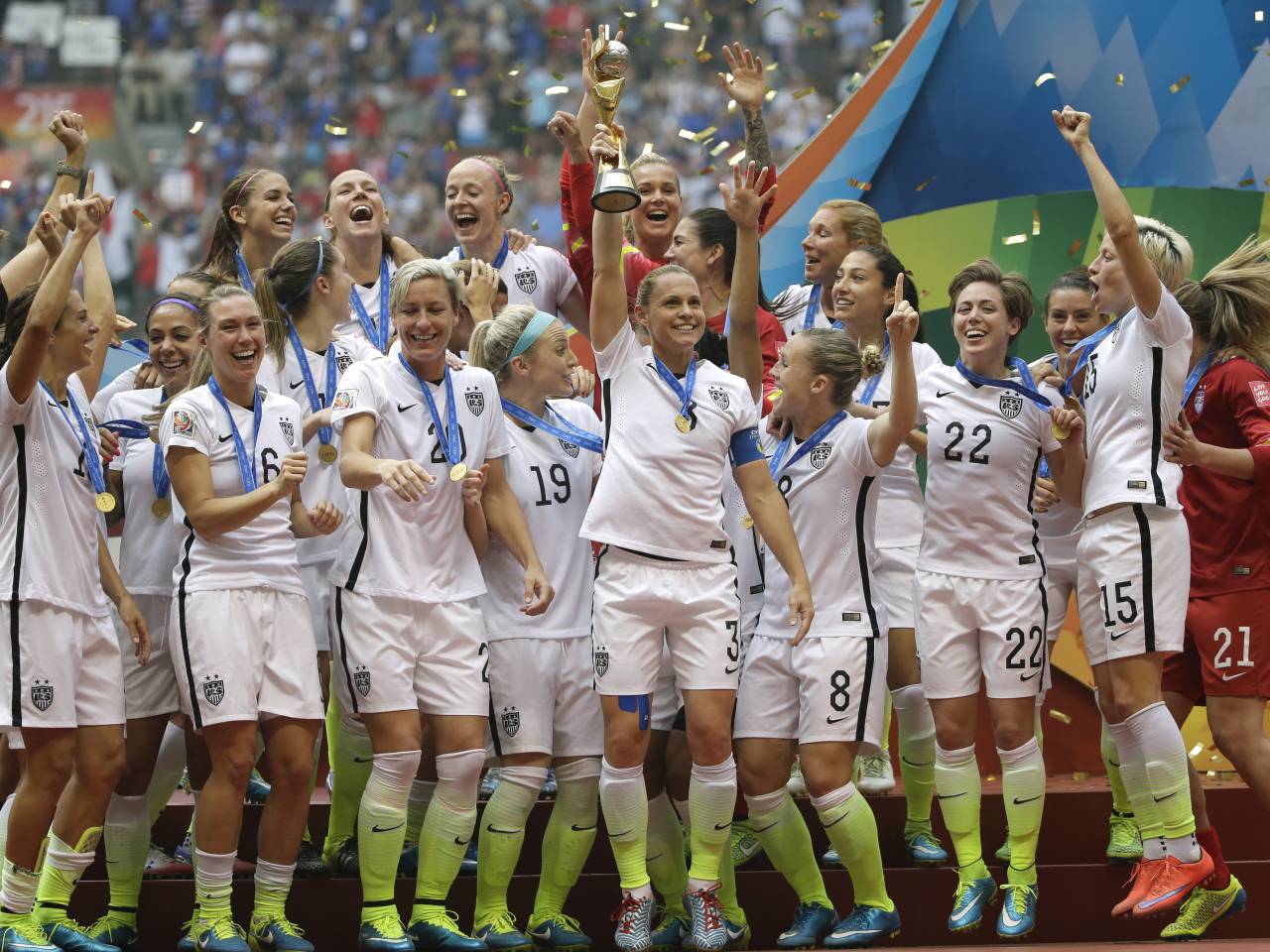In a story that broke earlier this month, five players on the Women’s national soccer team, including Hope Solo, Alex Morgan, Megan Rapinoe, and captains Carli Lloyd and Becky Saurbrunn, have filed a suit with the Equal Employment Opportunity Commission (EEOC) citing a wage discrimination complaint. In the lawsuit, the five brought forward the issue of compensation when it comes to men’s and women’s international soccer competition. The five, acting on behalf of the entire Women’s National Team, detail their stellar performance in last summer’s World Cup and the payment they received, in which some cases as much as 40% less than what men made in similar international competitions.
After hearing the news of the suit filed with the EEOC, U.S. Soccer, the governing body for men’s and women’s soccer in America, responded to the complaint. In their response, they citied the tremendous improvements that have been made in women’s soccer in recent history with Title IX in effect, such as more being done to develop the game for young girls in the United States and internationally. Furthermore, US Soccer argued that the current compensation deal under which women’s soccer operates under was something that was collectively bargained for. This collective bargaining agreement is based off a salary security for women, as opposed to the bonus based system the men bargained for in their agreement.
Under this current agreement, which US Soccer continues to argue was collectively agreed on, the numbers tend to fluctuate, but according to a New York Times info-graphic, men receive bonuses of $17,625 for a win against a top ranked opponent and $5,000 for a loss or tie. For the women against a similarly ranked opponent, they receive $1,350 while getting nothing for a loss or tie. The Women’s National Team is not alone in the fight over wage discrimination in professional or organized competitions. Last summer, during the Western and Southern Tennis Open, reports came out following the tournament about the winnings the champions received. On the men’s side, champion Roger Federer received $731,000 for his winnings while the women’s champion, Serena Williams, only got $495,000 for her performance. Last month, tournament director Raymond Moore was fired due to his comments regarding women’s compensation in competitive events, saying that they “ride the coattails” of men in similar events.
Complaints have also been filed against the NCAA regarding complaints over a lack of funding towards women’s athletics in college. Since the passage of Title IX over 40 years ago, many have argued that little has been done to create equality in the funding that men’s and women’s programs receive at the collegiate level.
With the suit filed earlier this month, prominent people in the soccer community have come forward in support for the Women’s National Team’s suit, most recently being U.S. Men’s goaltender Tim Howard. In an interview last week, Howard expressed full support to the women, encouraging them to fight for their right to equal pay. Also last week, Women’s Captain Carli Lloyd wrote an op-ed in the New York Times explaining her fight for equal pay. In the article, she explains that they are, “sick and tired of being treated like second class citizens,” and points to the high amounts of revenue the Women’s team generated for U.S. Soccer in last summer’s World Cup, the highest ratings for any soccer event in American history. She also illustrates the disparities in compensation between men and women’s soccer in travel expenses and sponsor appearances.
Along with the fight being put up by current players, two members from the 1999 Women’s World Cup team, Michelle Akers and Julie Foudy, have also thrown their support behind the women taking on U.S. Soccer. Akers and Foudy are no strangers to wage discrimination fights, as they too fought for similar reforms to U.S. Soccer back in ’99. Having accomplished very little back then, the two are currently lobbying US Soccer and the court of public opinion to enact change.
Democratic Presidential hopeful Hillary Clinton has also been a vocal advocate for wage discrimination not only in corporate and business America, but also for the Women’s National Team. Last week during a campaign event in New York City, she appeared on a panel with Rapinoe advocating for women’s pay equality. By sitting with Rapinoe, she too has praised the efforts of the women taking the fight to EEOC.
While no further legal action has been taken on either side since the suit was filed, public debates over wage equality have surged. Op-eds, interviews, and media appearances by those involved have brought the story to the public’s eye. With the 2016 Summer Olympics in Rio quickly approaching, the debate will surely take center stage as the Women’s National Team prepares for the summer games.



